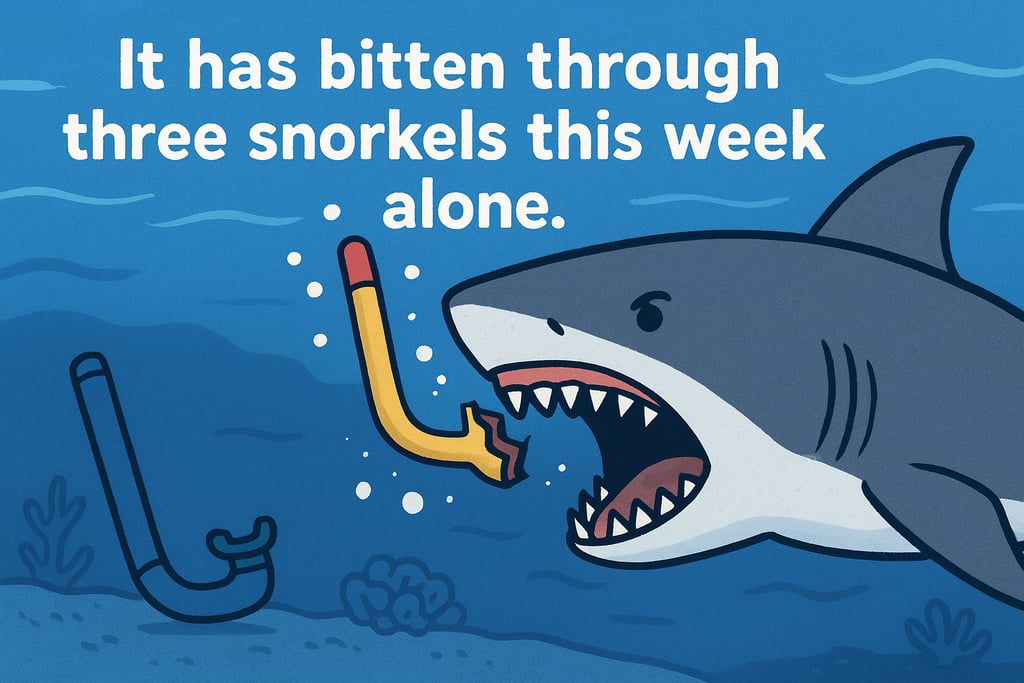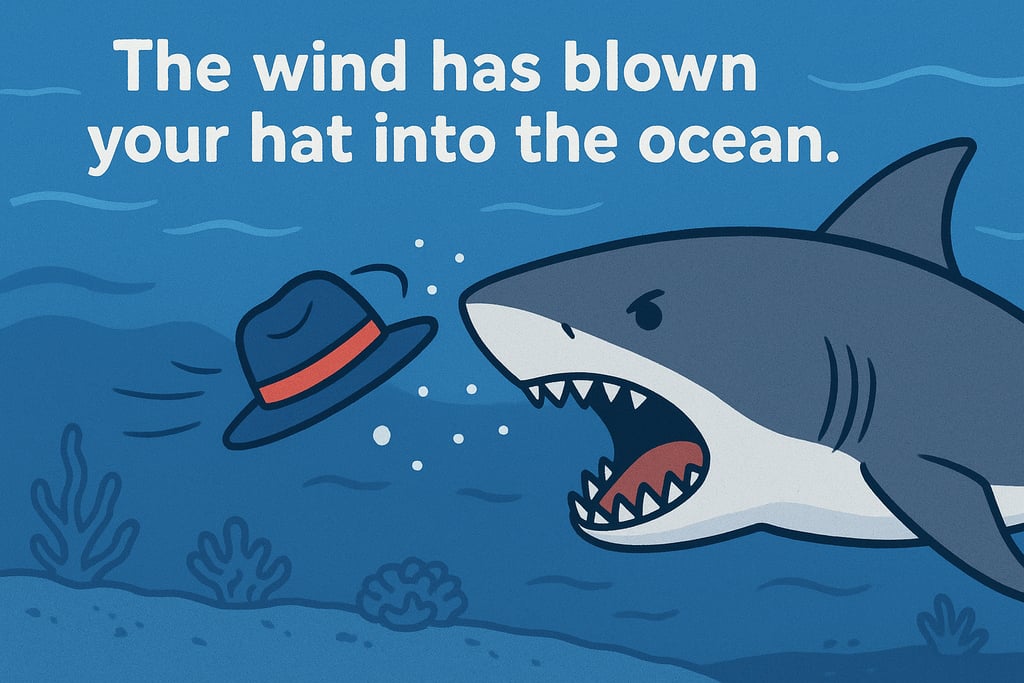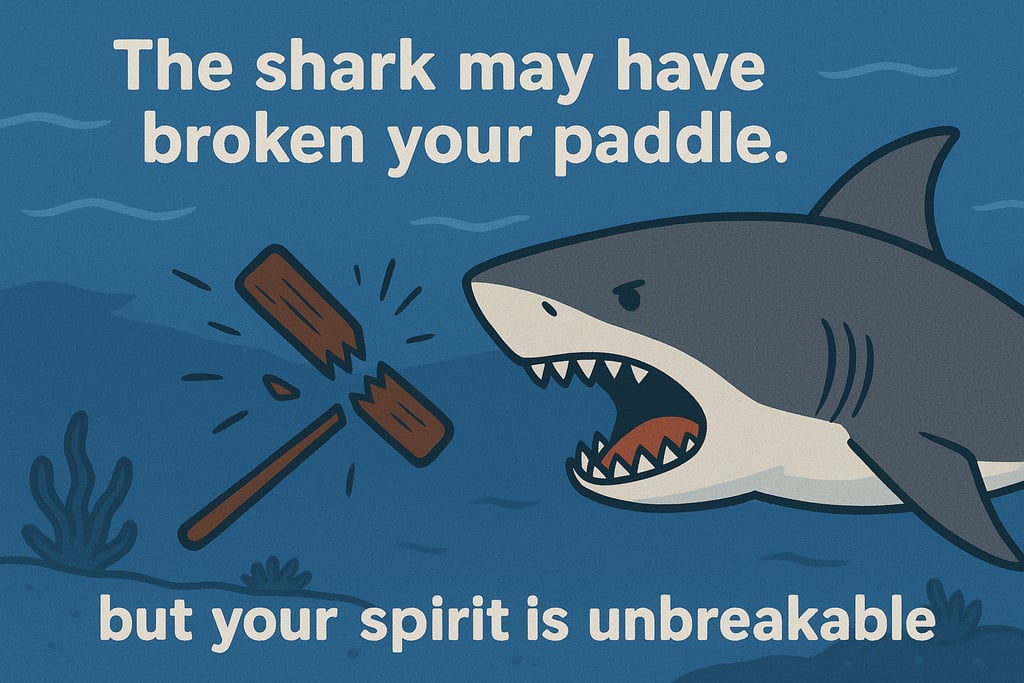Get your free copy of WEEK 1 of "My English Summer" HERE

Irregular Verbs: bite, blow, break


When Irregular Verbs Feel Like Shark Encounters
Your boat is broken, the wind has blown you off course, and a shark is about to bite. Can you survive the deadliest irregular verbs in English?
Just a quick note — since this video lesson comes from my bilingual channel, you’ll see some Greek translations 🇬🇷 to support my Greek learners. But don’t worry! If you’re an international viewer, you can simply skip over those or just enjoy the beautiful sound of the Greek language while you learn!
You’re swimming peacefully in the crystal-blue waters of English grammar when suddenly a fin slices the surface. Your heart races. Your inner grammar lifeguard whispers: “Stay calm. Remember the irregular verbs.”
Yes, today’s sharks are none other than:
🦈 Bite
🌬️ Blow
🔨 Break
They may look scary at first glance, but once you know their moves, you’ll swim circles around them.
Picture this:
Your boat is broken (past participle of break) after colliding with a suspiciously large wave.
The wind has blown (past participle of blow) you way off course, straight into shark-infested waters.
And just when you think it can’t get worse, a shark lunges forward, ready to bite. (Don’t worry, you’ll learn how to conjugate it before it gets your grammar arm.)
Suddenly, English grammar isn’t just about sentences—it’s about survival.
Verb 1: 🦈 Bite
Infinitive: bite
Past: bit
Past participle: bitten
A shark doesn’t politely bite. It bit into your surfboard last summer. It has bitten through three snorkels this week alone.
Usage example:
"The mosquito bit me."
"The dog has bitten my shoe."
"Don’t let stress bite into your confidence."
Moral: if you master bite, you’ll never get bitten by irregular verbs again.
Verb 2: 🌬️ Blow
Infinitive: blow
Past: blew
Past participle: blown
Waves crash, the storm rages, and the wind has blown your hat into the ocean. That’s blew yesterday, blown today, and always a little dramatic.
Usage example:
"The referee blew the whistle."
"The leaves have been blown away."
"Don’t blow your chance to sound natural in English."
Remember: storms pass, but great grammar lasts.
Verb 3: 🔨 Break
Infinitive: break
Past: broke
Past participle: broken
When panic strikes, don’t break. Yes, the shark may have broken your paddle, but your spirit is unbreakable.
Usage example:
"She broke the record."
"The window has broken again."
"Don’t let mistakes break your motivation."
Because in grammar, what’s broken can always be fixed—with practice.
I Mastered English’s Deadliest Verbs—And So Can You
I used to tremble when irregular verbs swam my way. But once I started picturing them as sharks, I realized something:
Sharks are powerful. So are irregular verbs. Once you master them, nothing can break your confidence, blow your progress off course, or bite into your motivation.
So grab your grammar surfboard. Stay calm. And remember: the only thing more powerful than a shark is a learner who refuses to quit.
Let me know in the comments — are you a survivor or a quitter? I’d love to hear if my witty, humorous, and motivating lessons inspire you not to give up, whether you’re learning or teaching! Check out my other videos for more inspiration. I love sharing my English stories through real connection with you — because that’s what makes learning and teaching meaningful.
I can help you learn English:
❤️ Courses → Explore all Birdhouse English Courses
❤️ Private Coaching → 1:1 Sessions with Vanessa
❤️ For kids (ages 4–7) → Want to improve your kids’ reading and literacy? 📖 Download free samples here
❤️ Free Listening Practice → Listen & Learn with exercises and answer key included
❤️ Entrepreneurial Literacy → Boost your English & business skills
Want updates, meaningful lessons, and personal tips from me?
🪺🌿Subscribe to my newsletter and join my email list — 💎I only share what helps you grow.
Sending You My Softest Kiss,
❤️Vanessa Koukou








